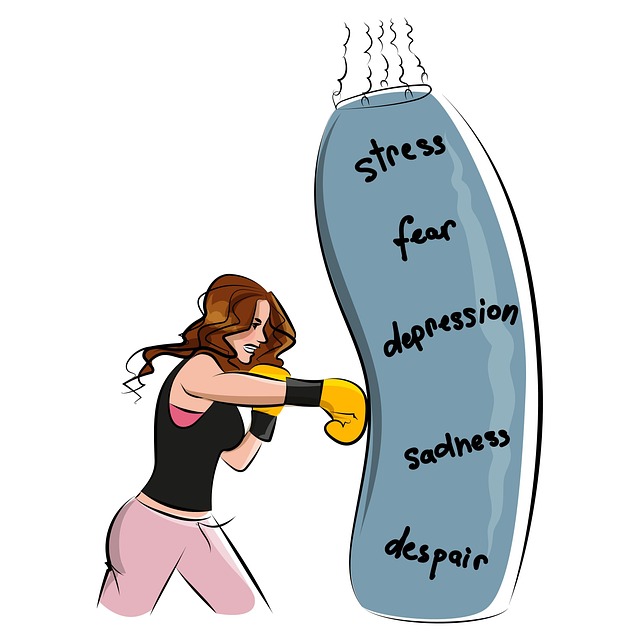Depression, a complex condition with genetic and environmental triggers, can be managed through various effective treatments like Littleton Cognitive Processing Therapy (LCPT), Social Skills Training, and mindfulness practices. LCPT specifically targets negative thought patterns, empowering individuals with healthier coping strategies and emotional resilience. Long-term prevention focuses on lifestyle changes: regular exercise, balanced diet, and quality sleep. Self-care routines, including journaling and therapy, are crucial for maintaining mental wellness, with resources like the Mental Wellness Podcast Series providing accessible guidance.
Depression is a growing concern worldwide, yet prevention strategies remain underemphasized. This article explores comprehensive approaches to combat this mental health challenge. We begin by dissecting the causes and symptoms of depression, followed by an in-depth look at Littleton Cognitive Processing Therapy (LCPT) as a potent tool for prevention. Additionally, we delve into lifestyle modifications that foster long-term mental well-being, offering practical insights for individuals seeking to safeguard their psychological health.
- Understanding Depression and Its Causes
- Exploring Littleton Cognitive Processing Therapy (LCPT) as a Prevention Tool
- Integrating Lifestyle Changes for Long-Term Wellbeing
Understanding Depression and Its Causes

Depression is a complex mental health condition that significantly impacts an individual’s daily life and overall well-being. It goes beyond fleeting feelings of sadness or disappointment; instead, it involves persistent low mood, loss of interest in activities once enjoyed, changes in appetite and sleep patterns, fatigue, difficulty concentrating, and in severe cases, thoughts of self-harm. While genetic predisposition plays a role, environmental factors such as trauma, chronic stress, and social isolation are significant contributors to its development.
Littleton Cognitive Processing Therapy (LCPT) is a highly effective approach that focuses on identifying and modifying negative thought patterns. This therapy helps individuals challenge and reframe distorted thinking, thereby reducing symptoms of depression. Social Skills Training, another valuable tool, teaches individuals effective communication and interpersonal techniques, fostering healthier relationships and reducing social isolation—a common risk factor for depression. Additionally, Risk Management Planning for Mental Health Professionals can empower individuals to anticipate and cope with stressful situations, while Stress Reduction Methods like mindfulness meditation and deep breathing exercises offer practical tools to manage symptoms and promote overall mental resilience.
Exploring Littleton Cognitive Processing Therapy (LCPT) as a Prevention Tool

Littleton Cognitive Processing Therapy (LCPT) is emerging as a powerful tool in depression prevention, offering a structured approach to addressing negative thought patterns and cognitive distortions that contribute to mood disorders. This therapeutic method, developed by mental health professionals, focuses on guiding individuals through a process of identifying and modifying harmful thinking habits. By doing so, LCPT aims to enhance emotional resilience and promote healthier coping mechanisms.
In the context of crisis intervention guidance, particularly for healthcare providers facing burnout prevention strategies, LCPT can be instrumental. It equips practitioners with techniques to support patients in managing stress, anxiety, and depressive episodes effectively. Through this therapy, individuals learn to challenge unhelpful thoughts, replace them with more realistic and positive ones, and develop healthier ways of navigating emotional challenges, thereby fostering improved mood management skills.
Integrating Lifestyle Changes for Long-Term Wellbeing

Integrating lifestyle changes is a crucial component of long-term depression prevention and overall mental wellness. This involves adopting holistic strategies that go beyond short-term fixes. Regular exercise, for instance, releases endorphins known to boost mood and reduce anxiety. Combining this with a balanced diet rich in omega-3 fatty acids and vitamin D can significantly enhance mental resilience. Additionally, prioritizing quality sleep allows the brain to rejuvenate, playing a vital role in maintaining emotional stability.
Littleton Cognitive Processing Therapy (LCPT) is an effective approach that targets negative thought patterns contributing to depression. By learning to manage these thoughts through therapy and self-care routines like journaling or meditation, individuals can gain better control over their moods. The Mental Wellness Podcast Series Production offers accessible resources for those seeking guidance on mental health topics. Moreover, developing a consistent self-care routine, tailored to individual needs, is essential for promoting emotional well-being.
Depression prevention is a multifaceted approach, and by integrating understanding, therapy, and lifestyle changes, individuals can significantly reduce their risk. The article has explored these key strategies, with a specific focus on the effectiveness of Littleton Cognitive Processing Therapy (LCPT) in addressing the root causes of depression. By adopting LCPT as a preventive measure, combined with regular exercise, mindful practices, and a balanced diet, people can cultivate resilience and enhance their overall mental wellbeing. These simple yet powerful tools empower individuals to take control of their mental health and navigate life’s challenges more effectively.












